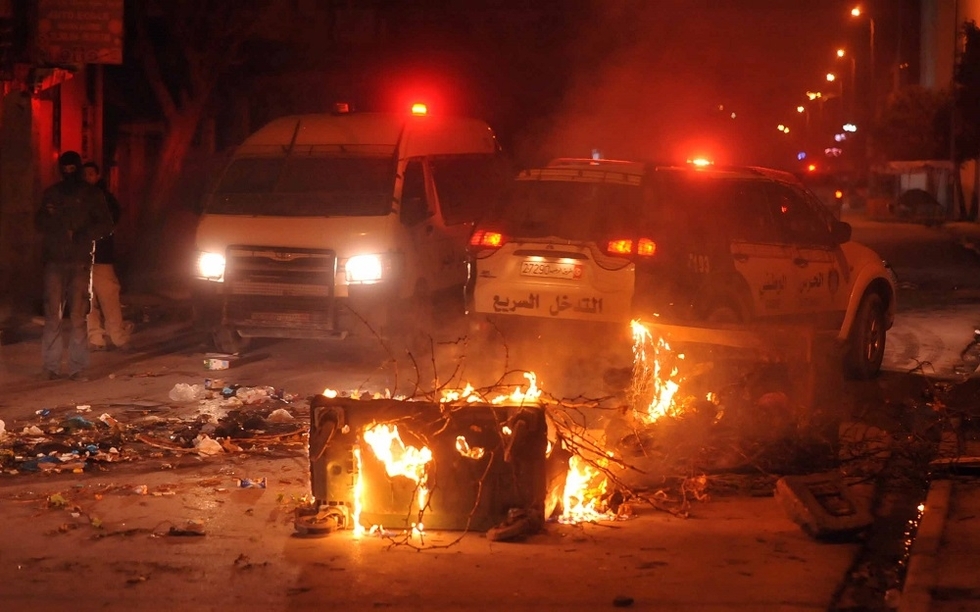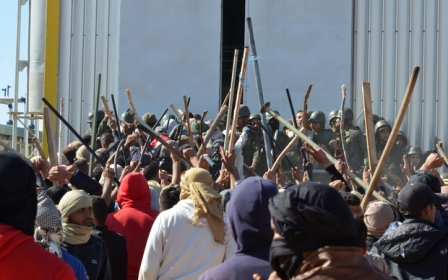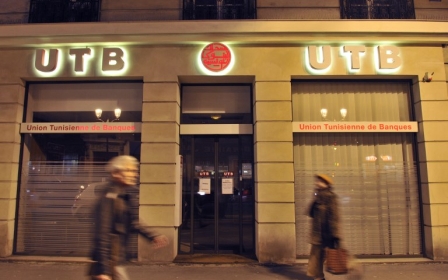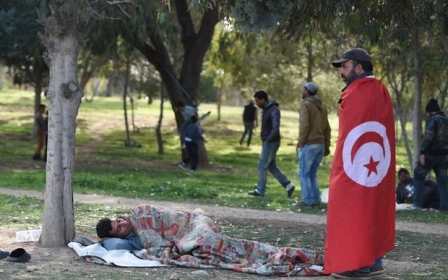Tunisian opposition calls for protests until austerity plan scrapped

Tunisia's main opposition party on Tuesday called for continued protests against "unjust" tax increases in the 2018 budget, a day after one demonstrator was killed in clashes.
Protests erupted in more than 10 towns across Tunisia on Monday against the price and tax increases imposed by the government to reduce its ballooning deficit and satisfy its international lenders. One protester was killed in Tebourba, a town 40km west of the capital Tunis.
We will stay on the street... until the unjust financial law is dropped
- Popular Front leader Hamma Hammami
Late last year, the current government agreed to a four-year loan programme with the International Monetary Fund worth about $2.8bn in return for economic reforms.
Public anger has been building since 1 January, when the government raised the prices of petrol and other items and increased taxes on cars, phone calls, internet use and hotel bookings as part of the IMF agreement.
"Today we have a meeting with the opposition parties to coordinate our movements, but we will stay on the street and we will increase the pace of the protests until the unjust financial law is dropped," Popular Front leader Hamma Hammami said.
He said the government was unfairly targeting the poorer sections of society with austerity.
Tunisia's prime minister, Youssef Chahed, said the economy would improve and appealed for calm. Chahed heads a coalition of Islamist and secular parties but has been under constant pressure from powerful labour unions.
He said that while demonstrations were acceptable, violence was not.
"People have to understand that the situation is extraordinary and their country is having difficulties, but we believe that 2018 will be the last difficult year for the Tunisians," Chahed said.
The 2011 uprising and two major militant attacks in Tunisia in 2015 damaged foreign investment and tourism, which accounts for eight percent of its economic activity.
The trade deficit expanded by a quarter in the first 11 months of 2017 to a record $5.8bn, December data showed, and the dinar currency weakened to more than three per euro for the first time ever on Monday.
'Sacrificing the poor'
Khelifa Chibani, a spokesman for the interior ministry, said 44 people had been arrested for carrying weapons such as knives, setting government buildings on fire and looting shops.
"What happened had nothing to do with democracy and protests against price rises... Yesterday protesters burned down two police stations, they looted shops, banks and damaged property in many cities," he said.
The government says it wants to cut the public sector wage bill to 12.5 percent of gross domestic product in 2020 from about 15 percent now by offering voluntary redundancies.
But it is also trying to impose higher petrol prices and contributions to social security, which are tough for many people to swallow after years of hardship.
"At the time of Ben Ali, which we did not like, I filled my stand with vegetables, fruits and other items with 10 dinars, and now 50 dinars do not fill this gap. The situation has worsened dramatically," said Fatma, a market woman in a Tunis district where protests took place on Monday.
"The government is sacrificing the poor and the middle class by raising prices and ignoring tax evaders and businessmen," she said.
Middle East Eye propose une couverture et une analyse indépendantes et incomparables du Moyen-Orient, de l’Afrique du Nord et d’autres régions du monde. Pour en savoir plus sur la reprise de ce contenu et les frais qui s’appliquent, veuillez remplir ce formulaire [en anglais]. Pour en savoir plus sur MEE, cliquez ici [en anglais].




